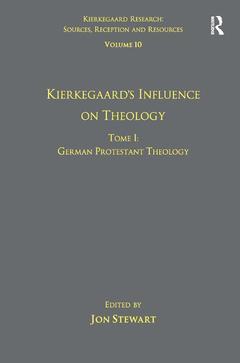Description
Volume 10, Tome I: Kierkegaard's Influence on Theology
German Protestant Theology
Kierkegaard Research: Sources, Reception and Resources Series
Coordinator: Stewart Jon
Language: English
Subject for Volume 10, Tome I: Kierkegaard's Influence on Theology:
Keywords
Christoph Schrempf; christoph; Gesammelte Werke; schrempf; Kierkegaard’s Work; friedrich; Concluding Unscientific Postscript; gogarten; Young Man; kierkegaards; Systematische Theologie; emanuel; Die Christliche Lehre Von Der; hirsch; Friedrich Gogarten; gesammelte; Dietrich Bonhoeffer; werke; Bonhoeffer; work; Furcht Und Zittern; Hermann Gottsched; Glauben Und Verstehen; Kierkegaard Studies Yearbook; Kierkegaard Reception; Regin Prenter; Sanctorum Communio; Philosophische Brocken; Systematic Theology; Theologie Und Kirche; Die Kirchliche Dogmatik; Existential Philosophy; Kierkegaard’s Thought; Theologie Der Hoffnung; Modern Theology
Publication date: 05-2012
Support: Print on demand
Publication date: 08-2016
· 15.6x23.4 cm · Paperback
Description
/li>Contents
/li>Biography
/li>




